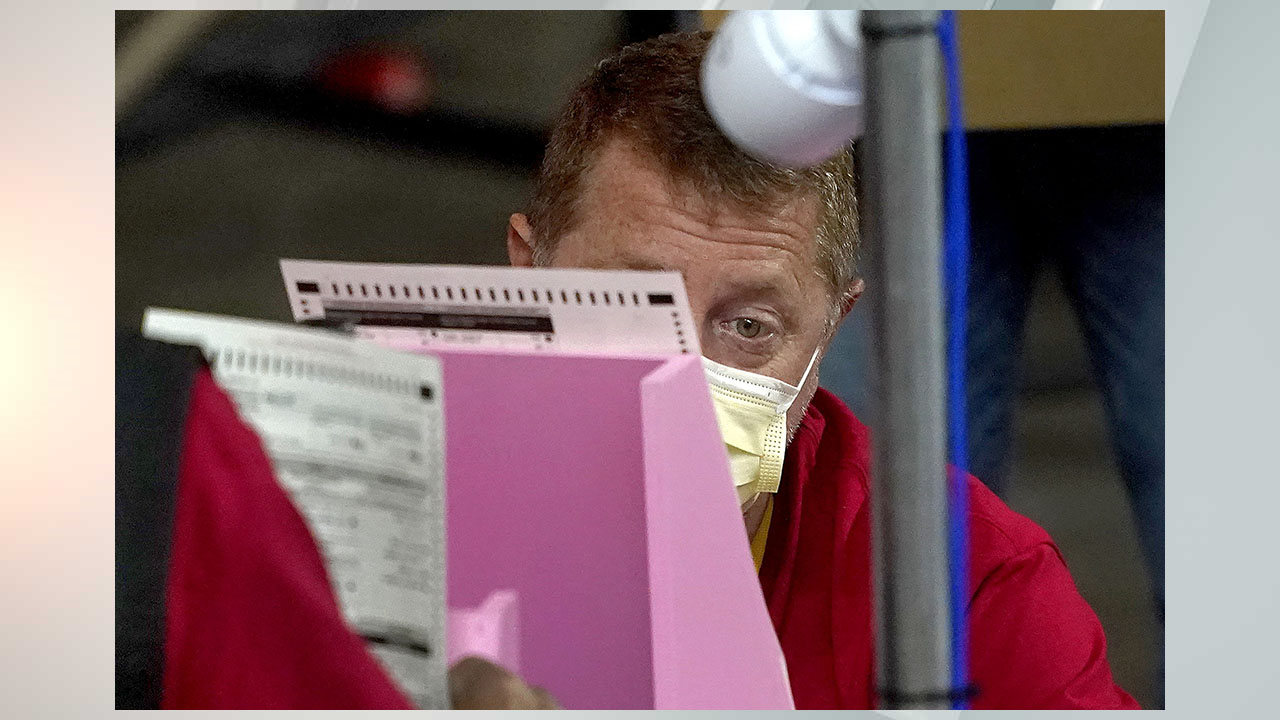GOP-led Arizona Senate panel votes to hand-count all ballots
PHOENIX (AP) — Republican state senators on Monday advanced legislation that would require every ballot cast in Arizona’s elections to be counted by hand, with GOP proponents who embraced former President Donald Trump’s false narrative of massive voter fraud calling it a needed reform.
The proposal from Sen. Wendy Rogers, R-Flagstaff, was approved by the Senate Government Committee Monday afternoon on a 4-3 vote with no Democratic support.
The measure is one of scores of election bills making their way through the Legislature this year.
Rogers said her proposal for an all-hand count tabulation was prompted by comments made by Doug Logan, the CEO of the firm the Arizona Senate hired to recount 2.1 million Maricopa County ballots last spring, Cyber Ninjas.
“This does away with the machines,” Rogers said. “When I interviewed cyber forensic expert Doug Logan … he told me that the biggest finding he has from the audit is that the more technology we use, the more chance there is to cheat.”
Logan’s hand-counting operation used hundreds of people, lasted weeks and only recounted the presidential and U.S. Senate races. He confirmed that President Joe Biden won, as the original machine count had found.
Jen Marson, executive director of the Arizona Association of Counties, said the proposal was simply unworkable.
“As we know, we cannot get enough people in many of our counties to conduct the limited hand count that happens post-election,” Marson told the panel. “I struggle to believe that we would have enough people to hand count the entire election and all of the different ballot styles associated with that election in any kind of timely fashion.”
But Rogers says she there would be no shortage of volunteers to count the ballots quickly, although she failed to mention there are dozens of races on each ballot. Statewide, 3.4 million ballots were cast in 2020.
Sen. Kelly Townsend, the committee’s Republican chair, was shepherding more than a dozen election bills through her panel Monday afternoon, with plans to go into the evening. They included bills to ban the required use of “Sharpies” to mark ballots as she sought to address just one of the claims she said led Trump supporters to dispute the election results.
With only a one-vote majority in the Senate and House, many of the more outlandish proposals are unlikely to make it into law. In addition to Rogers’ proposal to require paper ballots and banning machine counts, others would eliminate voting by mail, which is used by the vast majority of Arizona voters.
Republican Sen. Paul Boyer is one big roadblock.
“So I’m not voting to decertify (the 2020 election), I’m not voting for the 17 tests and the magic paper,” he told The Associated Press last week, the last a reference to a plan to add a host of ballot paper security measures. “I’m not voting to get rid of early voting. I’m not voting to prohibit all-mail ballots for schools, school elections. What else was out there?”
GOP House Speaker Rusty Bowers is another — he recently assigned a Republican House member’s plan to eliminate mail-in voting and require hand counts to be done in one day to 12 different committees.
Democrats have scoffed at many of the Republican efforts, calling them outgrowths of Trump’s campaign to get lawmakers in a half-dozen battleground states where he lost to overturn the election.
In the Senate committee hearing on Monday, the three Democrats on the GOP-dominated panel mainly stayed silent as a parade of election bills were heard.
“It’s one of those days where you’re realizing that they’ve gone so far off the rails that it almost kind of defies giving it any more legitimacy than it already has by trying to comment,” Democratic Sen. Martin Quezada said in a brief interview during the panel’s dinner break. “You’re not going to persuade these folks, and these ideas are so crazy that it’s like it’s not even worth arguing against.”
